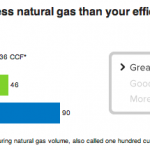A Thought for Connecting Students to Degree/Certification Pathways and Careers
Recently, we engaged in discussion with how we might further encourage students to pursue degrees and careers in STEM. (There’s a little bit more back story and focus, but it’s not necessarily relevant to the idea.) Through discussions I think we came up with a really interesting approach for using analytics and historical data (on courses completed toward degrees) coupled with alumni interviews (for what they’ve career path they’ve taken)
Connecting Students to Pathways to Careers in collaboration with Recent Graduates
There are any number of possible approaches to meet the goals of connecting students with pathways to careers.
Some of the key elements of what we believe will lead to successful approaches include:
- connecting people with people (as specific career-/pathway-focused role models),
- on the critical path (students are presented these connections within the tools or services they must use, so as to reduce the “build it and they will come” problem),
- draw deeply on existing data and data relationships (course schedules, transcripts, etc.),
- collect pathway and career data as inobtrusively or in as automated ways as possible.
Below are two sample scenarios that draw these elements together in similar ways.
Imagine when a student registers for a course, s/he sees a listing of 3 recent graduates with their photos who have taken that course. S/he can see a brief statement of how that particular course led to the recent graduate’s career choice or academic career. This scenario links a current student to recent graduates, and shows a career path that results from that particular course. It’s tied to a critical process, registration, that all students must complete. (Does your course registration support this? What would it take to do this? What if students/alumni opted in?)
Similarly, the course registration (or student advising) process could allow the student to delve deeper into subsequent course pathways leading to academic degrees. So if I take this introductory biology course, and then click through to take these other courses, I can end with the requirements for a molecular and cell biology degree. This too is tied to the same critical process, registration, but relies on existing catalog data and perhaps anonymized degree paths taken by graduates who have received those degrees. (Are your degree pathways expressed programatically? Do you have a degree check system, is that tied into course registration?)
There are also any number of assumptions inherent in any approach—including the scenarios listed above. Also there are clearly privacy implications of these approaches.

